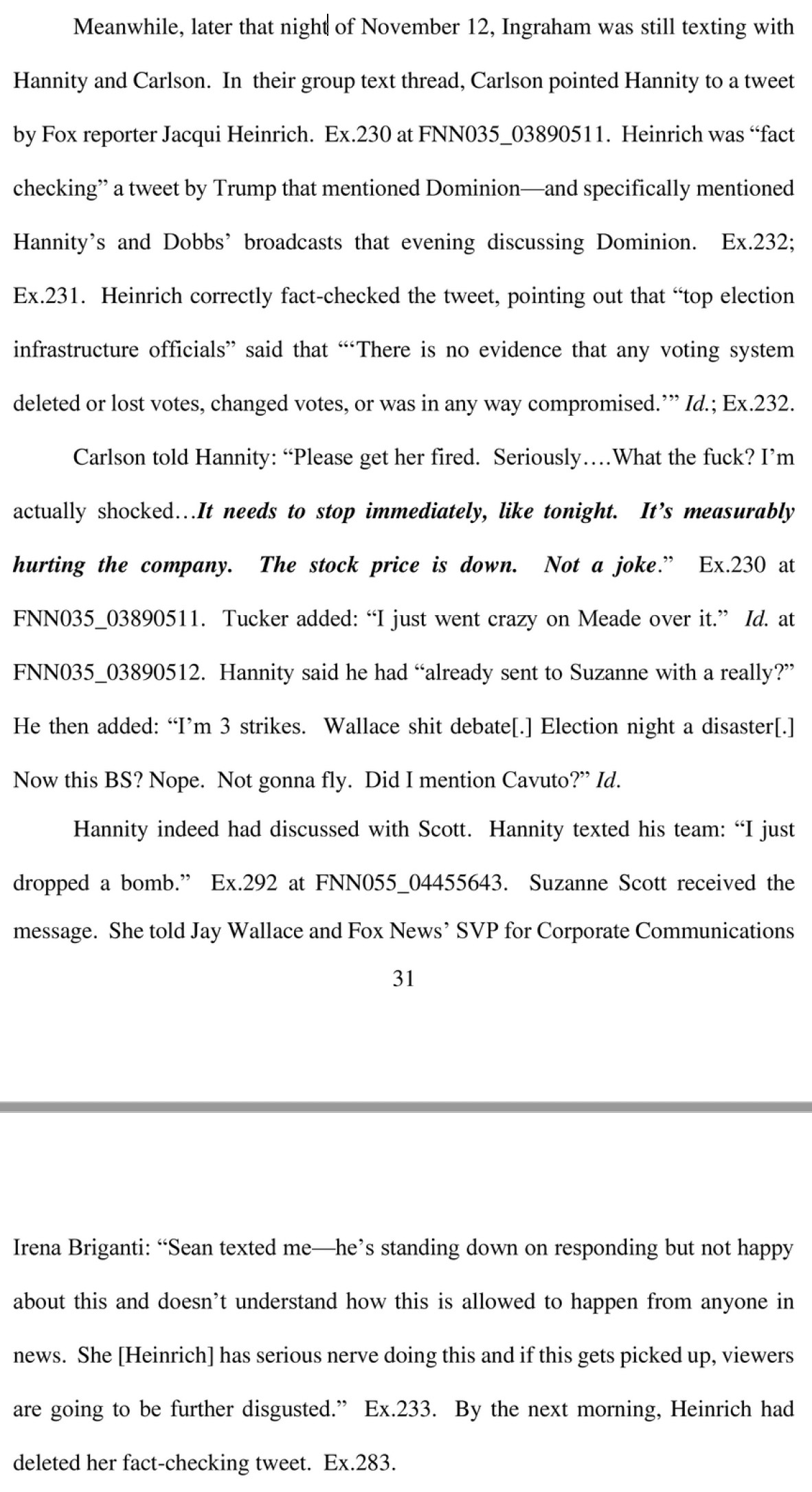Here are some of the topics that have caught my attention as I’ve been browsing the internet:

Leading Off
Former Prime Minister of the United Kingdom Boris Johnson has never been known for his subtlety.
So I’m not surprised that he would be overheard reacting with that epithet to a plea to support current UK Prime Minister Rishi Sunak’s efforts to strike a deal with the European Union over the status of Northern Ireland and finally get Brexit done.
Johnson has been openly trying to figure out how to regain the job he lost last year after a series of scandals forced his resignation after parliamentary Conservative and Unionist Party members and government ministers finally lost confidence in him.
As the 2019 General Election winner—and a notable narcissist—Johnson believes he is the only Conservative and Unionist Party politician who can win the next election, which must be held no later than December 12, 2024. Current polls show the Labour Party leading by over 20 points.
Johnson gained power in the aftermath of Brexit, the 2016 referendum that asked UK voters if they wanted the country to leave the EU. The result surprised many people by narrowly passing (with 51.89 percent voting yes).
Johnson and Brexit supporters told many lies during that campaign. There would be no £350 million per week dividend for the National Health Service. Turkey—now known as Türkiye—was not close to earning EU membership. Leaving the EU did not lead to an economic boom—instead, much of the UK’s current economic crisis results from the ramifications of the nation leaving the EU’s common market.
But one issue—the status of the border between Northern Ireland and the Republic of Ireland—has proven to be the most difficult to solve in Brexit implementation negotiations.
The 1998 Good Friday Agreement that ended most of the political violence in Northern Ireland was possible, in part, because Northern Ireland and the Republic of Ireland had an open border as members of the European Union. There were no customs checkpoints or need to show papers when traveling between the two nations. There was no real need to resolve the precise border between the two nations. Negotiators didn’t need to solve this problem because the European Union effectively did.
But Brexit implies that there must be a border at the places where the United Kingdom and European Union meet on land. There would no longer be a free movement of people, goods, and services between the UK and the EU. Passports need to be checked. Differences between the UK and EU’s laws and tariffs need to be addressed.
No one really cares about the border between Gibraltar and Spain.
But many people care a bunch about the status of the border between Northern Ireland and the Republic of Ireland. And one of those people is the President of the United States, the noted Irish-American Joe Biden.
Biden has made clear to a series of UK Prime Ministers that he would only support a trade agreement between the United States and the United Kingdom once there was a joint UK-EU resolution of the situation in Northern Ireland. Johnson wanted to go it alone and impose a solution on the EU because he promised to “Get Brexit Done.”
As I was finishing writing this post, UK Prime Minister Rishi Sunak and European Commission President Ursula von der Leyen held a press conference to announce they had reached a deal on post-Brexit trade rules for Northern Ireland. This was the rumored deal that prompted the profane reaction from Johnson with which I started this newsletter.
Sunak is taking a huge—but necessary—risk in reaching this agreement. There is no guarantee that he can pass a deal through the House of Commons or get Northern Ireland’s Democratic Unionist Party to end its boycott of the Good Friday Agreement’s political processes.
So Johnson’s reaction is significant. He still has a following among base Conservative and Unionist voters. The United States’ reaction kept him from using that profanity with the European Union and implementing a resolution he and the most extreme Brexiteers wanted for Northern Ireland.
Former Prime Minister David Cameron hoped the Brexit referendum would end the controversy about the United Kingdom’s relationship with Europe. He suspected the referendum would lose, and the right wing of his party would have to stand down. That proved to be a massive miscalculation. The turmoil continues.
Sunak is trying to resolve it in time for this year’s 25th Anniversary of the Good Friday Agreement and a likely state visit from President Biden.
Will Johnson use his influence to undermine this agreement and create more turmoil, if only because that would be his route back into 10 Downing Street? I hope I’m wrong, but the safe bet the last decade has been on Johnson and chaos.
Things I Find Interesting by Craig Cheslog is a reader-supported publication. To receive new posts and support my work, consider becoming a free or paid subscriber.
The Essential Television Journalist Medhi Hasan
MSNBC’s Medhi Hasan gets the profile treatment ahead of the release tomorrow of his new book, Win Every Argument.
I’ve followed Hasan for a long time, and his MSNBC and Peacock shows are a must-watch (or listen). The Guardian’s David Smith explains why Hasan is an outlier among television presenters.
“For those who criticise the American news media as too white, too Christian, too complacent, too inward looking, too pompous (“democracy dies in darkness”), too prone to herd mentality and too deferential to authority, Hasan has come along in the nick of time.
He is a British-born Muslim of Indian descent, anti-establishment muckraker and unabashed lefty with a bias towards democracy. As a former columnist and podcaster at the Intercept, and ex-presenter on Al Jazeera English, he used to worry that MSNBC would find him too edgy, too iconoclastic. But he says the network has been entirely supportive: he hosts weekly shows on MSNBC and NBC’s streaming channel Peacock.
One explanation is that, unlike shock jocks, bomb throwers and social media stars on the right, his show undeniably does substance. During the US military withdrawal from Afghanistan, it featured the Afghan perspective at length. When the war in Ukraine erupted, Hasan offered a 10-minute monologue about the fascist philosopher who informs Vladimir Putin’s worldview. After the police killing of Tyre Nichols, an African American man in Memphis, he discussed critical race theory and policing with two leading academics.”
For me, Hasan’s willingness to ask tough questions and keep following up on them sets him apart from virtually everyone in the United States.
“He has advice for political interviewers, too. Don’t ask seven different questions about seven topics, which allow a politician to dodge; follow up instead. Prepare, research and “show your receipts”. Hasan’s Twitter homepage has a pinned tweet, a video clip from his Al Jazeera days in which he eviscerates Donald Trump’s campaign adviser Steven Rogers, and the words: “Hey US media folks, here, I would argue immodestly, is how you interview a Trump supporter on Trump’s lies.”
So what if he got to interview Trump himself? Hasan says: “Donald Trump has this art called ‘Gish Galloping’, this idea that you overwhelm your opponent with bullshit, nonsense, lies over and over again at such a rapid pace that your opponent doesn’t have the ability to stop and factcheck them in real time and gets overwhelmed. Whether Trump does this wittingly or unwittingly, who knows? But he does it. He’s a master of it.
“There are tactics that you can use. You break it down, you don’t budge. When someone is hitting you with non-stop nonsense, don’t be distracted. Don’t go with the way they want to go. Stay put. Make clear what’s going on. Call out the tactic. Say: ‘We know what you’re doing.’ Make everyone aware of what’s going on. I always talk about breaking the fourth wall. Make very clear this is a bullshit strategy: you’re trying to overwhelm me with bullshit.”
Oh, how I wish this kind of questioning strategy could be the norm in the United States.
And not just for Trump. Transportation Secretary Pete Buttigieg needs a similar treatment to discuss how he handled the aftermath of the East Palestine, Ohio, rail disaster. For example, did Buttigieg’s experience as a consultant with McKinsey & Company lead him to trust company executives more than a regulator should? Is this worldview why Buttigieg hasn’t prioritized restoring Obama-era rail safety regulations during his first two years in office?
I doubt Buttigieg would sit down with Hasan for an interview. But we’d know more about the situation if he did. Plus, I suspect Buttigieg would end up doing a better job as Transportation Secretary if he had to address these issues publicly.
Hasan expresses the clearest understanding of any television host about the impact of Fox News on the MAGAization of the Republican Party. He also clearly gets how democracy is at stake with the 2024 election.
“You might say, oh, that’s paranoia, but if Donald Trump is re-elected as president and in January 2025 is sworn in, all bets are off what will happen to minorities, and in particular to my community, because whatever guardrails and adults in the room and limits on Trump’s behaviour you thought there were in the first term, they’re all gone. Absolutely nonexistent – anyone who thinks they exist is dreaming.”
Trump remains an existential threat to democracy and fabric of American society, Hasan argues. “We have kids in high schools shouting abuse at Latino and Black players from the crowd because they’ve got permission from the former president of the United States.”
Thank you for reading Things I Find Interesting by Craig Cheslog. This post is public so feel free to share it.
Quick Pitches
California
California Governor Gavin Newsom joined the leaders of 20 other states in announcing the creation of a Governor-led “Reproductive Freedom Alliance” committed to protecting and expanding reproductive freedom in their states. (Bill Barrow and Geoff Mulvihill, Associated Press)
Politics
Will Bunch explains why Speaker of the House Kevin McCarthy’s decision to turn over 44,000 hours of security footage to Tucker Carlson represents “extending and advancing a criminal cover-up of what really happened on Jan. 6, the date of an attempted coup against the U.S. government.” Bunch is also right that we owe whistleblower Reality Winner an apology. (Will Bunch, The Philadelphia Inquirer)
The Supreme Court just did something rare: it enforced a precedent conservatives hate. Given what the six-Justice conservative supermajority did last year, we can’t take such a result for granted. “That’s particularly warranted for the court’s decision in Cruz v. Arizona, which held that states are actually required to adhere to Supreme Court precedent, at least some of the time, or at least in cases that have nothing to do with abortion. But it’s also important to recognize how close—one vote—the Supreme Court came to plunging us further into nihilism and lawless shell games.” (Leah Litman, Slate)
I wish the leaders of the New York Times would engage with its readers regarding its atrocious coverage of trans issues. “Here’s the thing: there is no clear-cut line between advocacy and journalism. All media organizations have a perspective about the world and filter their output (which will, of course, strive to be fairly reported) through that perspective. To pretend otherwise is dishonest. Like it or not, the Times is involved in advocacy. It just needs to step back for a moment and think about who it’s advocating for.” (Arwa Mahdawi, The Guardian)
A pilot program implementing a four-day workweek in the United Kingdom was so successful—including increased revenues and employee well-being—that 56 of the 61 companies that participated plan to continue with the new schedule in some fashion. (Annabelle Timsit, The Washington Post)
Tom Nichols marked the first anniversary of Russia’s invasion of Ukraine by sharing “a more personal grief about the passing of the hopes so many of us had for a better world at the end of the 20th century.” (Tom Nichols, The Atlantic)
Science
Given how annoying they can be, hiccups have not gotten the scientific attention they deserve. But a few people have been working on how hiccups work and how to stop them. Would you prefer a breathing exercise or a straw designed to generate the required 100 centimeters of water pressure in the diaphragm to stop them? (Uri Bram, The Atlantic)
A new scientific paper suggests that black holes are responsible for generating the dark matter that astronomers believe is forcing the universe’s accelerating expansion. “Coming up with a nifty explanation for dark energy is one thing — and astronomers have been generating such theories for about a century — but this paper provides the first ever observational evidence. That is, evidence that can be measured and (importantly) tested, rather than just existing as an abstract theoretical “maybe.” (Troy Farah, Salon)
The physics behind those airplanes towing advertising signs are more complicated than I thought. (Dan Lewis, Now I Know)
Technology
The Science Fiction magazine Clarkesworld has temporarily stopped accepting short stories after noticing a surge in people using artificial intelligence to plagiarize their submissions. (Michael Kan, PC Magazine)
Russian propagandists are buying Twitter blue-check verifications in another sign that the company is accelerating the spread of political misinformation after Elon Musk’s takeover last year. (Joseph Menn, The Washington Post)
Society
A Beer and a Shot. This is a New York Times Cooking recipe I know I can pull off! But you aren’t making it happen for real unless you do a Chicago Handshake version with a Jeppson’s Malört and an Old Style beer at least once. Many people, alas, only do that once. (Rosie Schapp, New York Times Cooking)
A surge in European demand for tequila has led to a shortage of the agave plant used in its creation. Analysts expect a couple of years of high prices and shortages before enough new agave plants are available to balance supply and demand. (Richa Naidu and Valentine Hilaire, Reuters)
The story about the actual Cocaine Bear has more twists and turns than the new movie. (Ashley Wong, Wall Street Journal)
Here’s a great strategy to win at Monopoly if you follow all of the game’s rules to the letter and are okay with losing all of your friends. Turn frustrations about housing scarcity to your advantage! (Eipher, Imgur)
Pancakes have been an important part of the human diet for a very long time. “In 2022, researchers excavating the Shanidar Cave complex in Iraq unearthed the charred remains of some of the world’s oldest cooked leftovers. As Ceren Kabukcu, an archaeobotanical scientist at the University of Liverpool and the lead author of a paper on the discovery, says in an email, “It looked like the seeds were soaked before they were cooked. You can tell if it’s soaked or cracked before it’s mashed into a patty. From this, we suggested [the food underwent] something like a flat preparation.” The 70,000-year-old culinary treat was, in other words, a proto pancake.” (Grace Linden, Smithsonian Magazine)
Sports
Sally Jenkins is a master at eviscerating people and institutions who deserve such comeuppance. I’m glad she had some things to share about the Saudi Arabian-based LIV Golf tour. “From the outset, LIV was a home for buttercup-bellied moral cowards clutching at cash from a murderous regime, but it quickly has evolved into a refuge for guys who have lost their taste for competition.” (Sally Jenkins, The Washington Post)
Claire Watkins explains how the United States Women’s National Team’s 2023 She Believes Cup victory was an important start to the team’s preparations for this year’s Women’s World Cup. She also celebrates Mallory Swanson’s MVP performance and Alex Morgan breaking the record for most goals scored by a USWNT player after having a child (14). (Claire Watkins, Just Women’s Sports)
The impending bankruptcy of Diamond Sports, the Sinclair Broadcast Group-affiliated company that holds the local media rights for 42 teams across the National Basketball Association, Major League Baseball, and National Hockey League could have enormous ramifications for the financial structures of those sports. (Joseph Pompliano, Huddle Up)
Speaking of problems with the regional sports networks, Warner Bros. Discovery inherited four—in Pittsburgh, Houston, Colorado, and Utah—when it acquired the Warner Media assets from AT&T. Warner Bros. Discovery just told the professional teams airing on those networks that it wishes to shut down the channels. (Joe Flint, Wall Street Journal)
Matthew Belloni also notes that the government forced Disney CEO Bob Iger to unload the regional sports networks to Sinclair as part of its acquisition of 21st Century Fox during his first tenure as Disney’s leader. That decision to sell them for $10.6 billion makes the overall deal look better now that those regional sports networks have a value rapidly approaching zero. (Matthew Belloni, Puck News)
The Closer
The Manchester United Men’s Team won its first major trophy in six years, beating Newcastle United 2-0 on Sunday to win the Carabao Cup. Victories at Wembley Stadium are always so sweet.
Manchester United finally have their hands on a trophy 𝐀𝐆𝐀𝐈𝐍! 🏆🤩
— Football Daily (@footballdaily) 6:46 PM ∙ Feb 26, 2023
It is remarkable how much progress new manager Erik ten Hag has already made this season.
🗣 “We are still in the start to restore Manchester United to where they belong.” 🔴🏆
Erik ten Hag says moments like this are exactly where Manchester United need to be
— Football Daily (@footballdaily) 7:06 PM ∙ Feb 26, 2023
Thank you for reading my newsletter. Let me know what you think about what you’ve read. You can email me at craigcheslog@substack.com.
Please help me spread the word about this newsletter by sharing this post via email or on the social media network of your choice. And if you haven’t already, please consider signing up for a free or paid subscription.
Things I Find Interesting by Craig Cheslog is a reader-supported publication. To receive new posts and support my work, consider becoming a free or paid subscriber.












